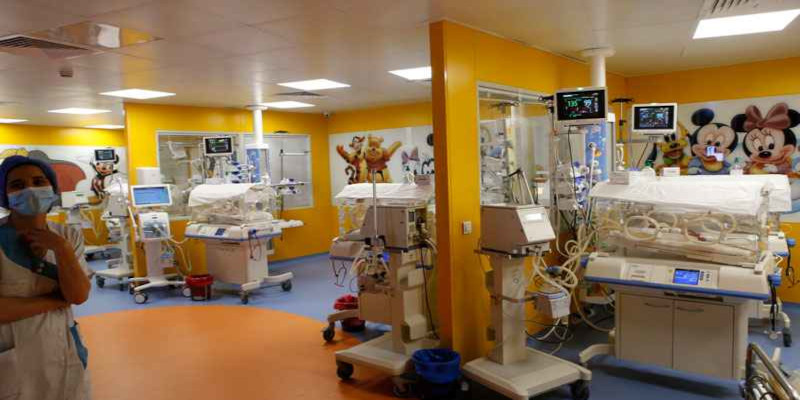According to Mali’s Minister of Health and the Moroccan clinic where the nonuplets were born, a Malian woman gave birth to nine babies at once after expecting seven. It seemed to be the first time in history that a woman gave birth to nine healthy babies at the same time. The five girls and four boys, as well as their mother, are “all doing well,” according to Mali’s health minister.
Halima Cisse, 25, gave birth to the babies by cesarean section in Morocco on Tuesday after being sent there for special treatment, according to Mali’s top health official.
Some of the babies were seen wiggling their hands and feet inside incubators in the private Ain Borja clinic in Casablanca on Wednesday, according to Associated Press reporters. In the neonatal unit, which was decorated with cartoon characters, medical workers checked on them on a daily basis.
Cisse was expecting seven children. Since hospitals in Mali, one of the world’s poorest countries, are ill-equipped to provide sufficient treatment for these exceptional multiple pregnancies, Malian doctors were forced to send her to Morocco for the births.
Youssef Alaoui, the director of the Casablanca clinic, told Moroccan state television that Malian doctors had asked them about the case a month and a half ago. He mentioned that they were not expecting nine children.
Cisse gave birth prematurely at 30 weeks and is now in stable condition, according to him, following extensive bleeding for which she received a blood transfusion.
The cesarean was ordered after Cisse complained of “birth pains,” according to Alaoui, the clinic’s director. The babies range in weight from 500 grams to one kilogram (1.1 and 2.2 pounds).
In an email to The Associated Press on Wednesday, the Guinness Book of World Records said that the existing record for the most live births at once is eight and that it is checking the Moroccan birth.
The current Guinness World Record holder is American Nadya Suleman, who in 2009 gave birth to eight premature but otherwise healthy children.
The clinic owner, Alaoui, told The Associated Press that Cisse had not used fertility treatments as far as he knew. No other details about the pregnancy or births were given by the Malian health ministry.
Without fertility therapy, such births will be extremely unlikely, according to Yacoub Khalaf, a professor of reproductive medicine at King’s College London, who also pointed out the risks associated with multiple births.
He said that the mother was in danger of losing her uterus or her life. The infants “may be physically and mentally handicapped.” Cerebral palsy poses an astronomically higher risk.”
He urged more global awareness about fertility care tracking as well as the dangers and costs of producing so many premature babies at once.
Picture Courtesy: kstp.com







Leave a Reply